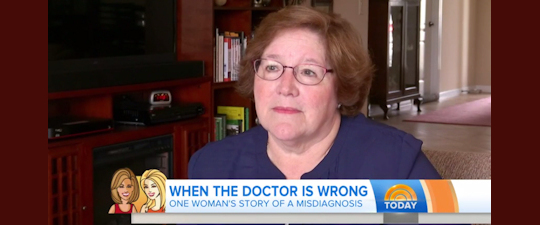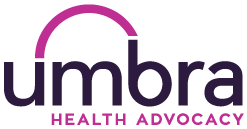Sometimes the Doctor IS Wrong: How to Avoid Misdiagnosis

Misdiagnosis. This topic is very personal. In fact, over the years I have been affected by PTSD (post traumatic stress disorder) because of a misdiagnosis that I experienced. But because it’s so personal, I may be the best person to share this lesson with you.
My name is Trisha Torrey. Thirteen years ago this week, I found a lump on my torso, about the size of a golf ball. A surgeon removed it and sent it off to the pathology lab for diagnosis. Two weeks later, I was told I had a rare, terminal form of lymphoma. I was given just a few months to live.
Over the course of the next three months, I got many additional tests. There was no sign of lymphoma, yet I was told I needed chemotherapy to keep me alive for up to a year.
As it turns out, sometimes the doctor is wrong. In fact, statistics are all over the map on the incidence of misdiagnosis. One report says that diagnostic errors happen 5% of the time. Others will tell you it happens 44% of the time.
But the truth is, when YOU or YOUR LOVED ONE is misdiagnosed, the stats don’t matter. It simply happens too often.
And that is what happened to me. The diagnosis was wrong. I refused the chemo. I have never had any form of treatment.
Those statistics reflect at least four things: Someone is diagnosed with the wrong thing, then treated with a treatment that cannot work, and gets sicker or dies. Or someone is diagnosed with the wrong thing, then not treated at all, and gets sicker or dies. Or someone isn’t diagnosed at all (“We can’t find anything wrong with you Mrs. Jones!”) and gets sicker and dies.
Or – as was my situation – someone gets diagnosed with something they don’t have, is told they will die, refuses treatment in favor of a second opinion, gets stymied and roadblocked over and over again by the system, perseveres, and eventually learns that not only is there no malignancy, no lymphoma, but 13 years later has never had any form of treatment – yet survives to pen this blog post for you.
Yes – too often the doctors are WRONG.
What brings this up today are Prevention Magazine, and the Today Show, both of which have recently told my story in an effort to help YOU avoid misdiagnosis. (Find the July 2017 edition of Prevention Magazine – sorry, the article is not online yet) – or watch this great clip from the Today Show. (If you’re curious about additional details, find them here.)
How to Prevent a Misdiagnosis
So how can you prevent a misdiagnosis from happening to you or someone you care about? Dr. Holly Phillips, who writes for Prevention Magazine, outlines these tips in her article:
- Be sure to always get copies of any test results. No news isn’t always good news. Sometimes results get misfiled, or aren’t delivered properly, and you NEED TO KNOW.
- Ask the “golden question” – what else can it be? That forces your doctor to think beyond his first, shoot from the hip answer, and gives you an opportunity to learn about other possibilities, including the one that might be more accurate (whether or not that’s what your doctor thought it was to begin with.)
- Get a second opinion. I’ll add some additional guidelines here: If the suggested treatment is at all invasive (surgery, chemo, radiation, etc), or difficult (unpleasant side effects), or long term (chronic disease), get a second opinion from an independent doctor, one who has no relationship, professional or otherwise, with your first opinion doctor. If those two opinions don’t agree, get a third. This is your health, and possibly your LIFE, after all.
Now here’s the tough part: When you are sick, or hurt, or fearful, uncertain, or exhausted, then you can’t do this by yourself, and even a loved one will have trouble keeping emotion out of it.

And THAT is when you find yourself an independent advocate who will pull out ALL the stops on your behalf to get you what you need. Of course – you can find that person right here in our national directory of independent advocates.
- You Bet Your Life! The 10 Mistakes Every Patient Makes (How to Fix Them to Get the Healthcare You Deserve)
- Differential Diagnosis: What Else Might Your Illness Be?
- How to Diagnose Yourself Using the Internet in 4 Steps
- Undiagnosed or Misdiagnosed ? You May Have a Rare Disease
Find a Health / Patient Advocate or Navigator
Learn more about AdvoConnection and The Alliance of Professional Health Advocates
